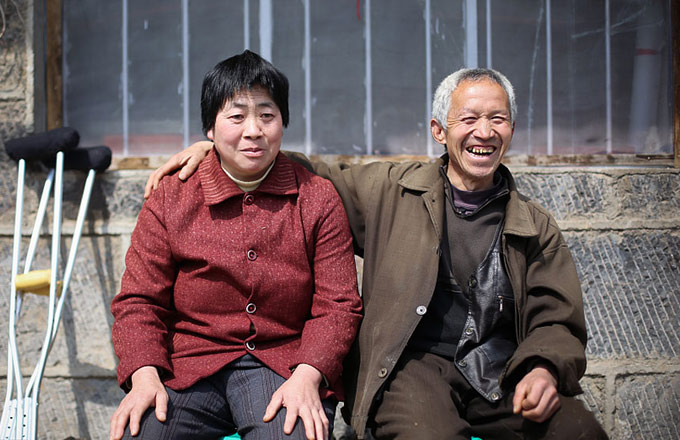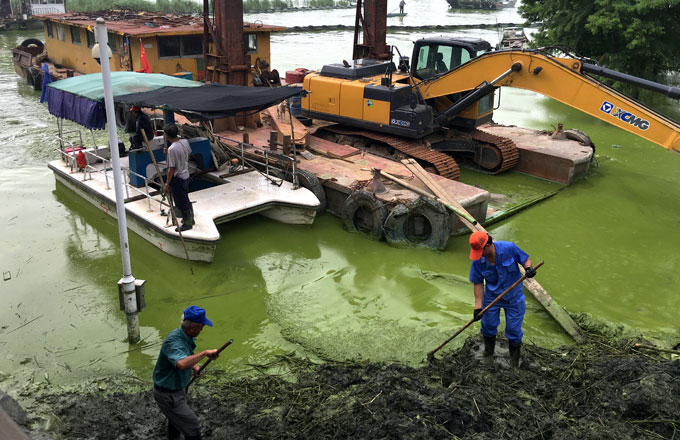Fishing ban to protect spawning in Northeast
Officers along border also monitor suspicious vehicles and airplanes
The summer fishing ban in boundary rivers and lakes in Heilongjiang province will run from June 6 to July 20, according to the provincial fishery bureau.
A ban is put into force in the province twice a year - in Xingkai Lake from June 6 to July 20, and in Heilong River and Wusuli River, on China's border with Russia, from June 11 to July 15 - during which all fishing activities are forbidden.
Autumn's fishing ban this year runs from Oct 1 to 20 along Heilong River and Wusuli River.
"Heilong River has been implementing the fishing ban since the 1950s to maintain ecological balance," said Yu Qinghai, a retired fishery expert.
The bans protect spawning seasons for different kinds of fish living in these waters, so the main objective is to ensure the survival of young fish, Yu said.
"After decades of following these practices, more fishermen have realized the importance of fishing bans," said Yu, "and those living in these areas have shown great support for the move."
Zhang Qingkai, head of Kunhe frontier police station for Heihe Public Security Frontier Corps, said: "Frontier police officers and soldiers are busy every year at this time patroling these areas."
For example, he said, Heilong River flows about 326 km through Heihe city and the border patrols are performed by more than 200 police officers and soldiers from 41 frontier police stations.
There are four border police officers and a border soldier in Zhang's station, in charge of 12.8 km of river.
"Besides daily work, our duty is preventing fishing during the ban, keeping people from both countries from illegally crossing the border, and monitoring suspect vehicles and airplanes," Zhang said.
Among the 360 households in three villages in Kunhe, 34 families have fishing licenses and own fishing boats.
At midnight before the first day of the fishing ban, Zhang said his officers will collect fishing boats and gear and return them after the ban ends.
They also organize activities to raise public awareness of the ban before it starts, such as putting up notices and explaining the regulations, which often involves going door to door in the neighborhood, he said.
At the same time, to improve the efficiency of operations, more advanced equipment is being supplied to patrol teams.
"We have installed video monitoring systems at every fishing boat spot, so we can watch the rivers 24 hours a day," Zhang said.
"When suspicious people or fishing boats are seen in the video, we can take action instantly."
Fishery administration ships will also be used to enforce the ban.
Li Jicheng, a 52-year-old fisherman from Kunhe's Huangqiyingzi village, has been fishing for 10 years.
His family can get about 20,000 yuan ($3,250) from fishing every year, which is about twice the income of farming.
"Of course the fishing ban will affect our income, but it's beneficial in the long run," Li said.
"In recent years, we have been able to find more kinds of fish in the river. So every year when the fishing ban begins, I hand in the boat and fishing gear and stop fishing."
Xu Fuji, a 52-year-old fisherman from Fularji village, has also been fishing in the area for a decade. Xu supports the ban, but believes more should be done to prevent polluting the river by dumping factory waste and removing sand, as well as through gold mining.
"We realized the need to keep the ecological balance of the river through the ban.
"But on the other hand, we should pay more attention to pollution which can also have a negative effects on the river," said Xu.
Recently, many people begin to excavate sand and gold in the river and more factories put sewage into the river, which is bad for the survival of fish, Xu added.




















